|
Yesterday was our last day of grape-picking, but there are still quite a few days of the harvest season left to go, from the perspective of our crush pad and cellar crews. These are busy times! We had a late and slow start to the grape harvest, which didn't start until September this year. Whereas harvest can last as long as ten weeks some years, this year everything is compacted into just seven. Right now, we're in the middle of that compressed "crunch time." Allegro staff who usually have weekends off are currently working six days a week, and they are...well, crushing it. These, of course, are also strange times. Due to COVID-19, the work in the vineyard, winery, and crush pad is all socially distant this year. In the vineyard, that has meant pickers keeping their distance from each other, and more bins overall. On the crush pad, it has meant streamlining the processes so that no more than one person is on a particular task at a time. Whereas in the past there would have been several people at the sorting table, these days there is just one. The compressed harvest has also presented logistical challenges, such as the juggling gyrations around tank usage. Sometimes a tank which has been emptied so that its contents can head to the press, gets refilled with other inhabitants just two hours later. All of the hard work leads to a promising 2020 vintage. Carl's going to work on an estate-grown sparkling Chardonnay this year--we haven't made our own sparkling wine in years. There's also the potential for a Cadenza Vineyards Rosé from this vintage, and of course I am excited about that prospect.
Every part of this process--from the grapes to the bins to the tanks to the barrels to the bottles--provides us with an exercise in looking forward. Both of us have always appreciated that. Cheers and thanks to our top-notch cellar and crush pad crews: Darcy, Amanda, Dwayne, Dave, and Chris!
2 Comments
"I may be getting too old for this shit." Carl evoked Danny Glover's iconic Lethal Weapon line when I asked him how punch-downs have been going. The guy is only fifty, but he definitely has noticed how much different this daily harvest ritual feels now, when compared to his first harvest at Allegro twenty years ago. Our cellar master Darcy sent me these pix of Carl mid-punch-down, over a fermentation bin full of Cabernet Sauvignon. It certainly is impressive to see a 6'4" person putting his full power into this task, while positioned in the carbon dioxide airspace over the red grapes. It takes quite a lot of force to break up the cap of grape skins, seeds, and stems which forms at the top of red grape fermentations, especially early in the fermentation process. Punch-downs ("pigéage," in France) are a ritual performed on red fermentation bins three or four times daily during the two weeks of fermentation. When you multiply that across a dozen bins, it's quite a task. Breaking up the cap allows the juice to re-integrate with its former grape-mates. Since it is contact with skins and stems which brings the juice its color, tannins, and body, it's an essential part of Allegro's winemaking process for its dry red wines. For years, Carl has used a homemade tool which he calls "Bigfoot" (below on the right, in Darcy's photo) when doing punch-downs. Made of stainless steel, that tool itself weighs about the same as a case of wine: nearly forty pounds. This year, they have created a much lighter version ("Littlefoot"), which is probably only five pounds. Harvest is the busiest time of the winery year, and that means "all hands (and feet) on deck." Carl takes on this physical task to keep himself humbled by his aging process (just kidding), but also so that he has a better sense of the year's fruit. Punching down the reds means that all of his senses are attuned to the grapes' qualities: how they look, feel, smell. The more reduced, earthy style of the resulting wines is also what he looks for as a winemaker.
Late-season grapes such as Cabernet Sauvignon (coming in as we speak) have the toughest skins, so this tasking is far from over. This old guy will be continuing to do the punch-downs until the last pressing, mid-November, when he'll pause for exactly one short moment before diving into the next task. Cheers to the 2020 vintage! 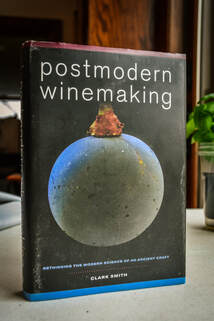 It's actually called a "Maceration Accelerator." I know this, but whenever I meet a new machine that I don't quite understand yet, I tend to use the term Calvin (of Calvin & Hobbes fame) used for his cardboard box machine capable of causing all kinds of wonderful transformations. This machine found its way to our crush pad yesterday and today thanks to Clark Smith. Clark Smith is a California-based winemaker, wine writer, philosopher, and educator whose 2013 book Postmodern Winemaking has been on Carl's reading shelf very often. Clark was at our winery in The Brogue for a couple of days, enabling Allegro to take part in a trial of this pioneering piece of Italian winemaking equipment. What the Maceration Accelerator actually does is break up the grape skins more than a traditional crusher/destemmer does, enabling more contact between the skins and juice during the fermentation process, which becomes quicker and more efficient. It's inserted into the crush process between the crusher/destemmer and the fermentation tank. Carl really enjoyed his time with Clark, whose interests include intersections between wine and music, certainly a fitting topic for our winery, aptly named by musician brothers back in 1980. Clark's work with the Postmodern Winemaking movement is really fascinating--here's a link to its website. Among other things, with his company Vinvention, Clark invented the use of reverse osmosis for alcohol reduction--a technology even I have heard of. These have been exciting times on the crush pad for other reasons, too, now that harvest is in full swing. On Monday a huge tractor trailer found its way to The Brogue, bringing grapes from far-away Washington state for future Allegro wine projects. In this load were Cabernet Franc, Petite Sirah, Merlot, and Tempranillo grapes grown in Columbia Valley's beautiful Kamiak Vineyard, a 100-acre vineyard overlooking the Snake River. Kamiak is associated with Gordon Estate Winery, where Jeff Gordon (not the NASCAR Jeff Gordon) has been growing grapes since 1980.
A future delivery will include Malbec, Petit Verdot, and Cabernet Sauvignon. The grapes come in bags inside large carboard boxes and contain a little bit of extra West Coast flavor: a minor amount of what is called "smoke taint," resulting from the wildfires which have been so devastating to the wineries and vineyards out West this year. Guess what: Clark Smith even has a page of resources for how winemakers can deal with smoke taint! This guy thinks of everything. The taste of wildfires won't be discernable in the wines, but I know I might imagine just a little bit of extra smokiness when I eventually get to taste them. 2020--how strange it will be to taste the wines from this vintage of this crazy year! |
Archives
March 2021
Categories |
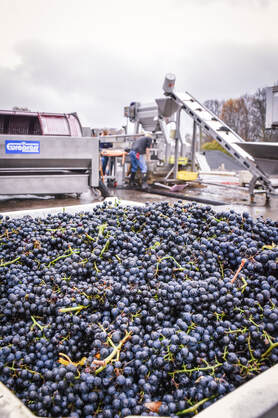



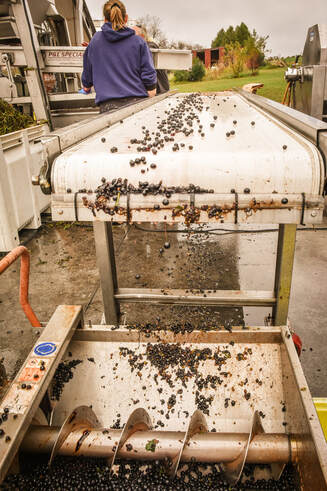


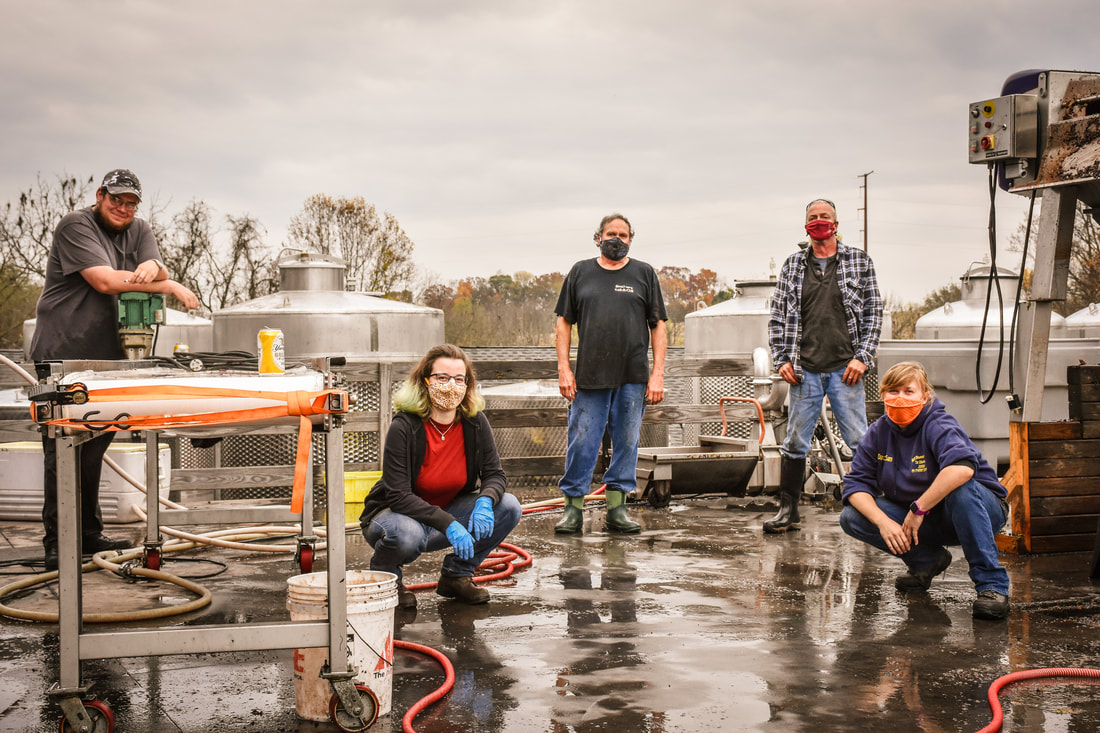
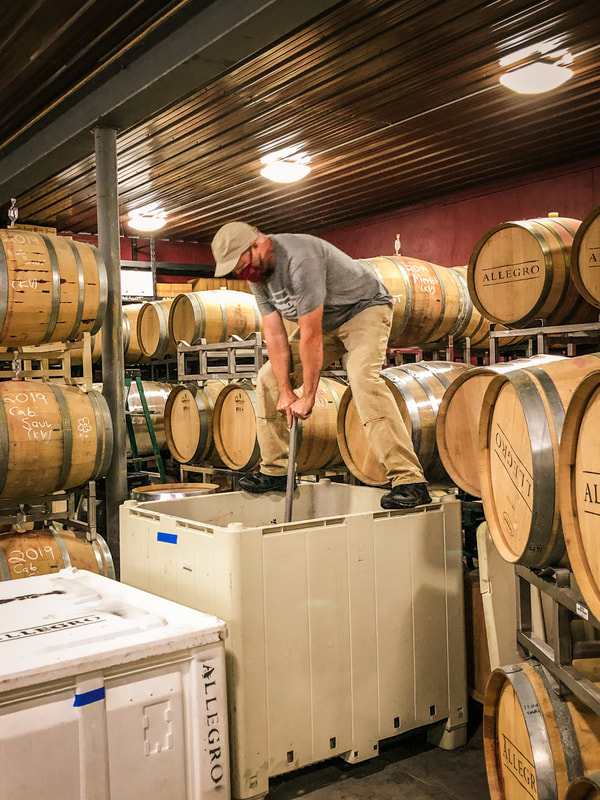
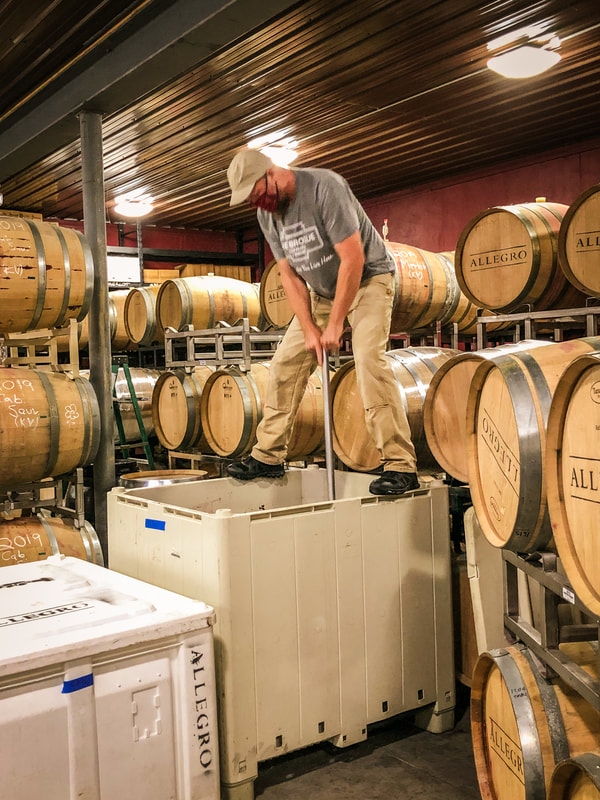
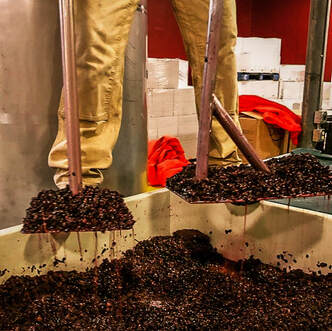
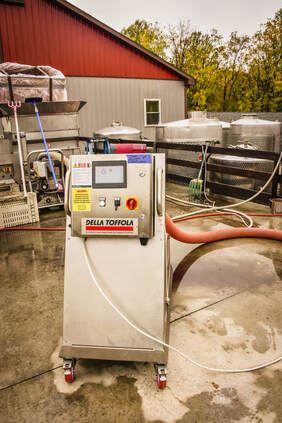
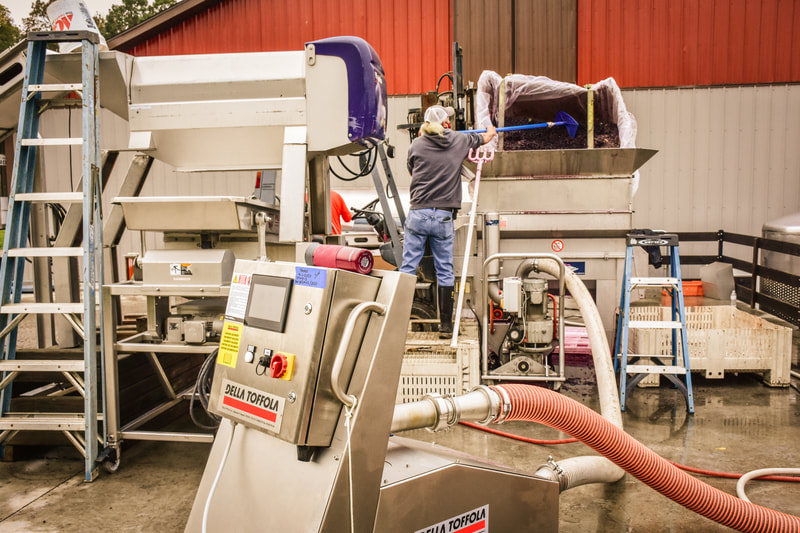
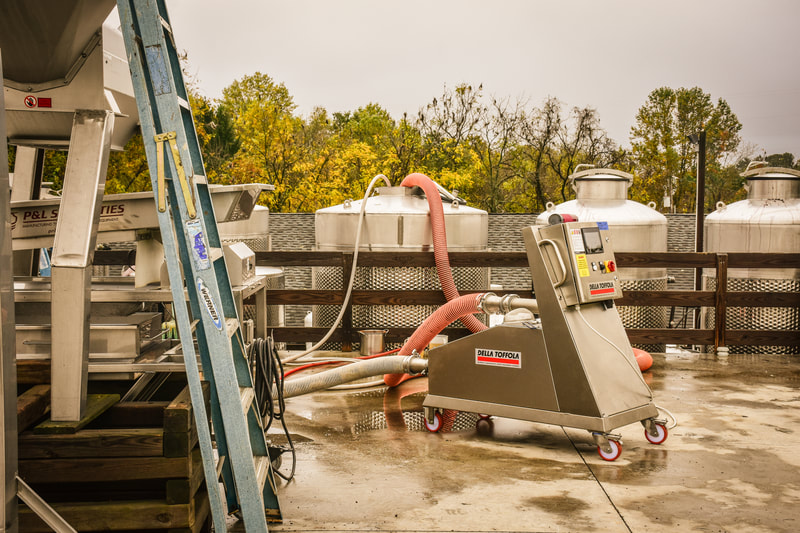
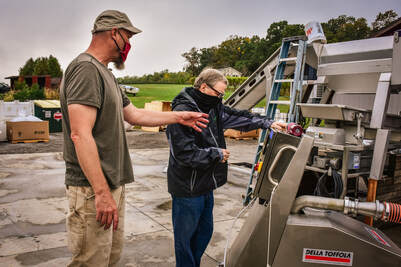
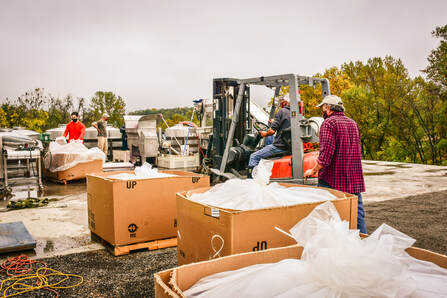
 RSS Feed
RSS Feed